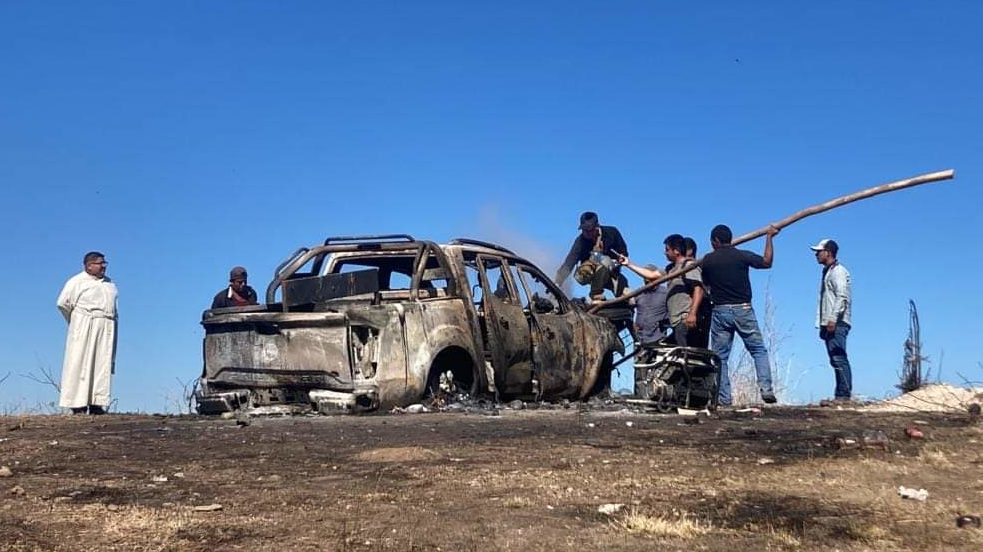After almost 10 days of terror in Chilpancingo, Guerrero’s capital city, peace was finally attained after a priest got the leaders of both gangs to negotiate by phone on Feb. 13.
In that period, two criminal groups attacked and killed seven bus drivers and led the people to stay at home out of fear of being shot on the streets.
Since then, no more violent actions connected to drug trafficking have occurred in the city, according to Father José Filiberto Velázquez, who heads the Human Rights Center Minerva Bello, which gives support to victims of violence and their families.
Velázquez’s initiative was part of a national program called National Dialogue for Peace promoted since 2022 by the Mexican chapter of the Society of Jesus, the Mexican bishops, the Conference of Religious, and the organization of lay people to build peace in the North American nation.
The movement was launched after the shocking killings of two Jesuit priests, 80-year-old Father Joaquín Mora and 79-year-old Father Javier Campos, who were shot dead along with a lay person inside their church in Chihuahua in June of 2022.
“Crime has been growing more and more since 2006 and the government has launched a strategy of war against gangs, something that only worsened the situation. Those groups have become more diverse and have grown,” Velázquez told Crux.
That crisis has eroded any sense of value that life and sacredness had, he added. That prompted the Jesuits and the rest of the Mexican church to act.
Father Jorge Atilano, the Executive Director of the National Dialogue for Peace, told Crux that the project was conceived to be carried out in three stages. The first one involved the establishment of a wide network of church people, scholars, and non-governmental organizations that work to reduce violence in Mexico.
The activists and social movements gathered in the Dialogue defined a national agenda for peace, which includes actions to be taken on the local and on the national levels.
“In the second phase, which is now taking place, the idea is to establish local agendas for peace and to implement small actions in that direction,” Atilano explained.
In the third stage, the people involved in the Dialogue will receive training and inter-institutional projects for peace will be implemented.
While national actions involve the creation of policies to attend to vulnerable teenagers and the commitment of politicians to the peace agenda, local initiatives – like the ones carried out by Velázquez – comprehend measures like giving support to victims of violence, establishing programs to prevent and combat drug addiction, and promoting the peaceful solution of conflicts.
“Each parish and diocese is implementing such actions in their own way. But it was possible to build a common perspective and define a national agenda for peace,” Atilano said.
Velázquez has not been the only member of the clergy to talk directly to criminals in order to pacify gangs. Bishop Maximino Martínez of Toluca told the press earlier this week that he has been talking to local drug lords in order to find peace. Cardinal Felipe Arizmendi, a bishop emeritus in Chiapas, also revealed that he has been having meetings with drug traffickers.
“A number of members of the clergy have been discussing problems directly with criminals. Unfortunately those initiatives many times do not make progress,” Atilano said.
Velázquez has been working with victims of violence since 2017 and has provided humanitarian help to them and to poor communities in Guerrero on many occasions. This way, he ended up getting to know some of the local drug lords – and that’s how he managed to talk to them.
“I saw a possibility to put them in contact to solve their dispute and I did it. Both parties were willing to talk and both of them trusted in the process,” Velázquez said.
More than a week has passed, and new attacks have not been reported in Chilpancingo, he said.
Working so close to criminals can bring many challenges and risks. Last year, Velázquez’s car was shot at many times while he was driving. Thankfully, he was not hit.
“Our work possibly goes against the interests of criminal gangs and government authorities. There’s always a risk for us,” Velázquez said, adding that it’s important for priests like himself to make clear for criminals that “they only want to bring a message of peace.”
The relations of the people involved in the National Dialogue with the Mexican politicians has also not been easy. Atilano recalled that President António Manuel López Obrador has recently said he considered the meetings between clergy and drug lords to be positive. But local politicians said that violence and peace are the State’s responsibility.
“The president is arrogant, but he had to recognize our work. We’re now focusing on talking to the next candidates [general elections in Mexico will be in June],” Atilano said.

